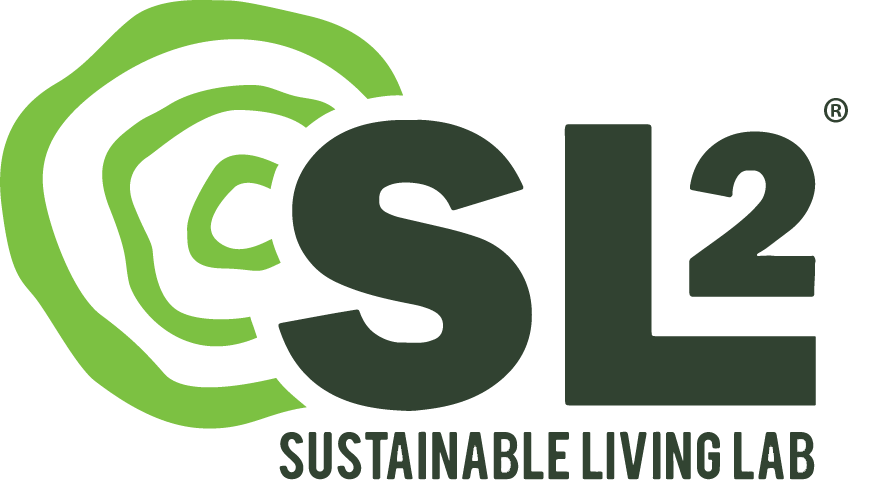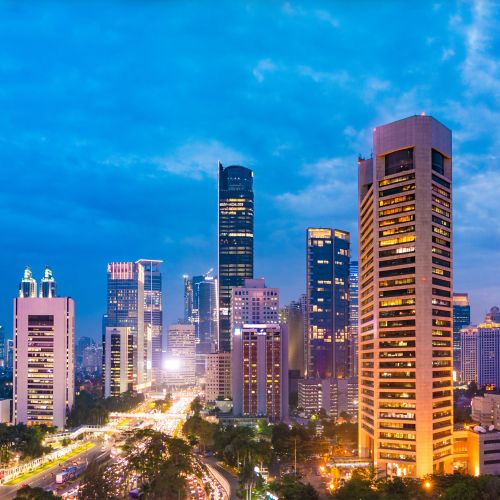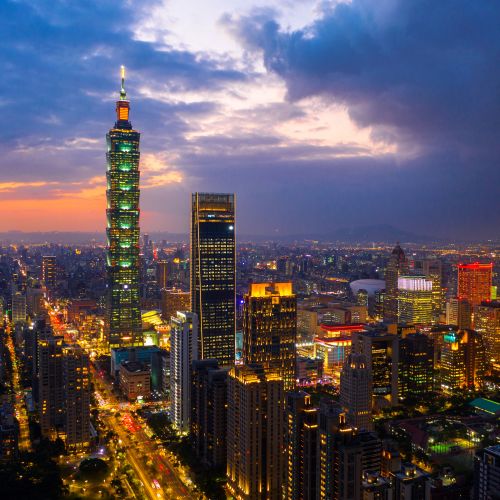Internationalisation Series: Green Technology and Sustainable Innovations in Korea
- Environmental, Social & Corporate Governance
- Innovation & Business Improvement
To use your SkillsFuture Credit, please submit your claim through our payment portal. Do not submit the claim manually via the SkillsFuture page. Please refer to our step-by-step guide here.
5 Days in Jeju, South Korea
Kindly note that accommodations are provided.
(See programme details under Topic/ Structure)
Who Should Attend
- Professionals and business owners who are keen on deepening their knowledge and develop strategies in corporate sustainability for Small & Medium-sized Enterprises (SMEs)
Overview
Participants from Singapore can draw many parallel and valuable insights from this, inspiring them to adapt and implement similar practice industries as we journey towards Singapore Green Plan 2030.

Sustainable Living Lab (SL2) is a sustainability consultancy and innovation lab founded in Singapore in 2011, specialising in creating and implementing rapidly evolving, impactful solutions. Their expertise lies in leveraging technology, as a tool for sustainability, with a strong emphasis on a community-driven approach to implementation.
SL2's practical yet ambitious approach has helped them build a client base across governments, international development organisations, leading multinational corporations (MNCs), and small to medium-sized enterprises (SMEs).
Headquartered in Singapore, they have established a strong presence in Asia and beyond, with strategically located offices in India, Indonesia, and the United States enabling them to effectively engage, understand, and tailor their solutions to specific contexts.

Singapore Jeju Office is the representative office of Jeju Special Self-Governing Province in Singapore, and is the first among the 17 local governments in South Korea to be established here. It aims to foster connections between Jeju and the broader ASEAN region across various sectors, including trade, tourism, culture, and international exchanges. The office actively promotes Jeju small-medium enterprises products, tourism, and cultural heritage and aims to connect Jeju companies, governmental bodies with ASEAN entities.
Learning Objectives
At the end of the course, participants will be able to:
- Familiarise with Korea's technological landscape and sustainable solutions
- Explore applications of sustainability in urban life, residential and commercial areas, transportation, and energy
- Connect with like-minded individuals passionate about sustainability
- Gain practical insights into the integration of sustainability into daily life
- Experience personal transformation and broaden your worldview
- Compare and contrast Korean sustainability practices with those in your home country
- Gain exposure to new perspectives and methods during the immersion tour
Topic/Structure
- Sustainable Development Goals
- Electric Vehicles
- EV Battery
- Eco-Friendly Tourism
- Sustainable Waste Management
- Innovation & Entrepreneurship
- Investment Opportunities in Green Tech
Learning Journey: Business Trip to Jeju
| Day 0 – Arrival & Welcome |
|
| Day 1 - Macro view of Green Technology and Sustainable Innovations |
|
| Day 2 - Renewable Energy Generation |
|
| Day 3 – Energy Storage & Utilisation |
|
| Day 4 – Innovation & Investment Opportunities |
|
| Day 5 – Reflection & Assessment |
|
| Day 6 - Departure |
|
* Participants are advised not to purchase air tickets until a course confirmation email has been received, as a minimum number of participants is required for the course to commence.
* Flight tickets, airport transfers, travel insurance, and VISA (if required) are not included in the course fees and will be borne by participants.
* All schedules, itineraries, and business events are subject to change and availability.
Profile of Companies for Presentations & Site Visits
Jeju Environmental Resources Recycling Centre
Jeju Environmental Resource Circulation Centre seeks to establish a sustainable waste management system to address the growing municipal waste generation load. With the influx of tourists and growing population, the previously existing landfill and incineration facilities are insufficient, and with a daily processing capacity of 500 tons, the new facility enables the complete incineration of all municipal and combustible waste generated in Jeju. Incorporating the latest eco-friendly technology, the centre is an eco-friendly energy complex and achieve zero landfill for combustible waste through a sustainable infrastructure, contributing to Jeju's effort for a greener and carbon neutral city.
CFI Energy Future Centre
Operated by Jeju Energy Corporation, the CFI Future Energy Hall depicts Jeju's efforts towards achieving its 'Carbon Free Island 2030' goal. It presents a model for the transition to 100% renewable and clean energy and the 4th industrial revolution in response to the climate crisis. Providing a comprehensive overview of Jeju's 2035 carbon neutral vision, the hall also showcases the various renewable energy sources that the island has implemented and seeks to expand. Building on these clean energy sources, the hall also lays out Jeju's future plans to become carbon free through its smart energy town and city initiative that prioritises energy efficiency, energy saving techniques and reduction of carbon emissions.
Green Hydrogen Production Demonstration Complex and Hamdeok Fueling Station
The first of its kind in Korea, the 3.3MW Green Hydrogen Production Facility is part of Jeju's large-scale initiative to promote green hydrogen technology and adopt sustainable energy solutions. To ensure that citizens can have a stable and safe supply of green hydrogen, this facility aims to build a world class-50MW system by 2030 that is able to produce 600kg of green hydrogen per day. Green hydrogen produced is then supplied to the Hamdeok Hydrogen Fuelling station or used for power generation and other industrial processes. Alternatively, it is used as an energy storage medium to store surplus electricity from renewable energy sources.
As part of the province project to secure a green hydrogen ecosystem, the Hamdeok Hydrogen Refuelling Station is currently being used to refuel the hydrogen buses that are running in Jeju. These refuelling stations are supplied with green hydrogen from Jeju City and will be the first commercialised domestic model of green hydrogen.
Tamra Offshore Wind Farm
A 30MW offshore wind power project located half a nautical mile off the coast of Jeju, Tamra Offshore Wind Farm generates 85,000 MWh of electricity per year and supplies clean energy to power 24,000 households. It is the first commercial offshore wind farm in Korea to utilize t100% domestic technology. Also, serving as a prime example of private investment attraction, this farm was developed by Korea South-East Power Corporation with financing from the private sector (Doosan Enerbility).
Jeju Free International City Development Centre
Jeju Free International City Development Centre (JDC) was established as an exclusive organisation for supporting the central government’s Jeju Free International City initiative. This initiative seeks to transform Jeju into a regional unit in which deregulation and international standards will be applied in order to ensure the international movement of people, commodities, and capital as well as maximal convenience in business activities. Aligned with these goals, JDC advances projects in various fields such as tourism, education, medical science, and advanced science. Key projects embarked on includes attracting renowned global education institutions to Jeju, establishing foreign medical institutions and creating the Science Park for the IT and BT industries on service industry-oriented Jeju Island. This has led to outstanding foreign and domestic companies including Kakao, Eastsoft, and venture companies to situate themselves on Jeju Island.
(Jeju Technopark) Jeju Battery Industrialisation Centre
EV Battery Industrialisation Centre of Jeju Technopark was established to promote environmentally friendly business on Jeju and expedite the transition to a carbon-neutral economy. The centre leads the way in the circular economy of electric vehicle batteries by recovering, evaluating, reusing, and recycling after-use batteries from electric vehicles in Jeju which has the highest electric vehicle use rate in South Korea.
Dongbok‑Bukchon Wind Farm
A renewable energy facility in Jeju that pairs wind power generation with energy storage to improve grid stability and revenue during variable loads.
Nanoom Energy
A Jeju‑based solar photovoltaic and software company specialising in smart grid, energy storage systems (ESS), and AI‑based optimisation technologies for solar energy generation.
Green Hydrogen Bus Station (Jeju)
A pioneering infrastructure on Jeju Island supporting hydrogen-powered public transit, linked to green hydrogen production using surplus wind and solar energy, powering carbon‑free buses.
Assessment
As part of the requirement for SkillsFuture Singapore, there will be an assessment conducted at the end of the course. The mode of assessment, which is up to the trainer’s discretion, may be an online quiz, a presentation or based on classroom exercises.
Participants are required to attain a minimum of 75% attendance and pass the associated assessment in order to receive a digital Certificate of Completion issued by SMU Academy.
Fee Table
| EMPLOYER-SPONSORED | |||
PARTICIPANT PROFILE | SELF-SPONSORED | SME | NON-SME |
Singapore Citizen < 40 years old Permanent Resident LTVP+ | $2,419.80 (After SSG Funding 70%) | $939.80 (After SSG Funding 70% | $2,419.80 (After SSG Funding 70%) |
Singapore Citizen ≥ 40 years old | $939.80 (After SSG Funding 70% | $939.80 (After SSG Funding 70% | $939.80 (After SSG Funding 70% |
International Participant | $8,066 (No Funding) | $8,066 (No Funding) | $8,066 (No Funding) |
All prices include 9% GST
Post Secondary Education Account (PSEA)
PSEA can be utilised for subsidised programmes eligible for SkillsFuture Credit support. Click here to find out more.
Self Sponsored
SkillsFuture Credit
Singapore Citizens aged 25 and above may use their SkillsFuture Credits to pay for the course fees. The credits may be used on top of existing course fee funding.
This is only applicable to self-sponsored participants. Application to utilise SkillsFuture Credits can be submitted when making payment for the course via the SMU Academy TMS Portal, and can only be made within 60 days of course start date.
Please click here for more information on the SkillsFuture Credit. For help in submitting an SFC claim, you may wish to refer to our step-by-step guide on claiming SkillsFuture Credits (Individual).Workfare Skills Support Scheme
From 1 July 2023, the Workfare Skills Support (WSS) scheme has been enhanced. Please click here for more details.
Employer Sponsored
Enhanced Training Support for SMEs (ETSS)
- Organisation must be registered or incorporated in Singapore
- Employment size of not more than 200 or with annual sales turnover of not more than $100 million
- Trainees must be hired in accordance with the Employment Act and fully sponsored by their employers for the course
- Trainees must be Singapore Citizens or Singapore Permanent Residents
- Trainees must not be a full-time national serviceman
- Trainees are eligible for ETSS funding only if their company's SME status is approved prior to the course commencement date. To verify your SME's status, please click here.
Please click here for more information on ETSS.
Absentee Payroll
Employers who sponsor their employees for the course may apply for Absentee Payroll here. For more information, please refer to:
AP Guide (Non-SME Companies)
Declaration Guide (SME Companies)
Intake Information
Pre-Trip Workshop (On-campus): 31 Mar 2026 [Open for Registration]
Overseas Dates: 14 - 18 Apr 2026
Please note that our Internationalisation programmes will close registration 1.5 months prior to the start dates to accommodate travel arrangements. Please do not book air tickets until you have received our confirmation email. The course will proceed only if the minimum number of participants is met.




